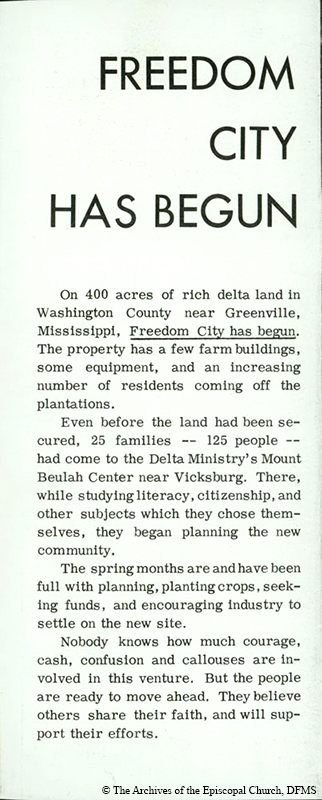Local or National Church?
Antagonism
The different approaches to racial turmoil in Mississippi were captured in the antagonism between bishops Allin and Paul Moore of New York. Moore said later of the tension with Allin during the 1960s, “Bishop Allin and I were on a collision course and barely managed to maintain even a strained relationship.”18 Allin believed that Moore had little first-hand knowledge of the people or conditions of the Mississippi Delta. White churches and people in Mississippi were excluded from participation in the Delta Ministry, and Allin felt that this exclusion left white Mississippians who wanted to help the cause stuck between a rock and a hard place: they were not able to help, but were criticized for not participating.
Authority and Episcopacy
Allin also defended his Episcopal authority and felt that if outside priests were to do work such as the Delta Ministry in Mississippi, they should first have the permission and welcome of the state’s diocesan bishop. In December 1964 the national Church’s Executive Council adopted a short-lived requirement that clergy receive approval from the diocesan bishop before doing work directly or indirectly related to the Church and Race fund, but it rescinded the requirement in February 1965. Allin demurred to the claim that this was merely a tactic to prevent outside groups from coming in to advocate for change, but rather a necessary courtesy to ensure transparency, open dialogue, and opportunities for broader communication and sustained cooperation on eliminating differences arising from racism.


